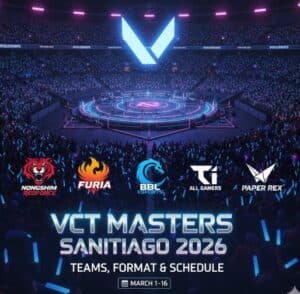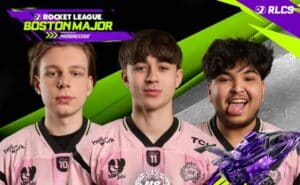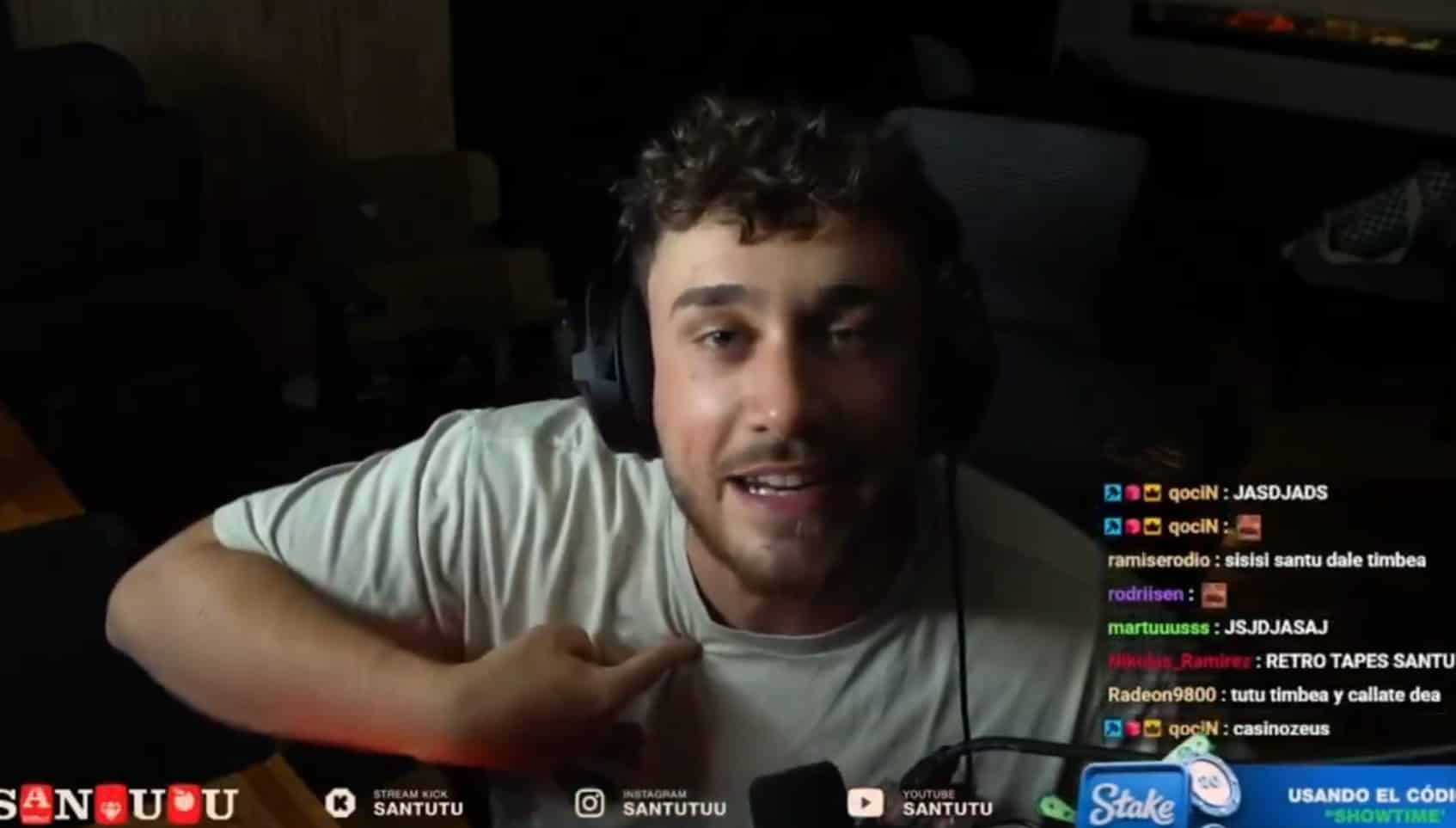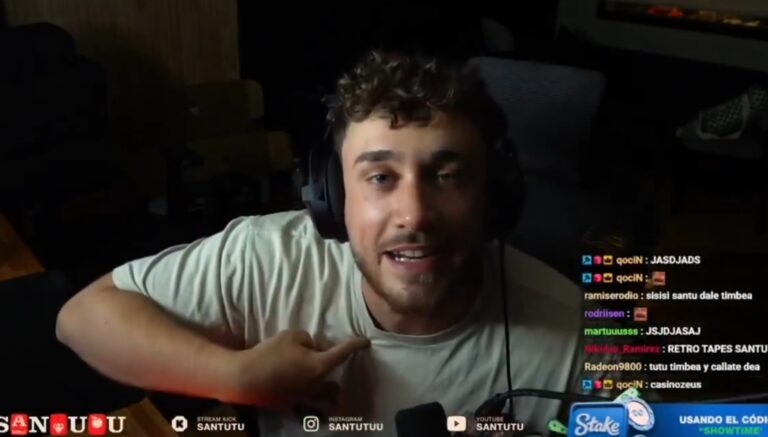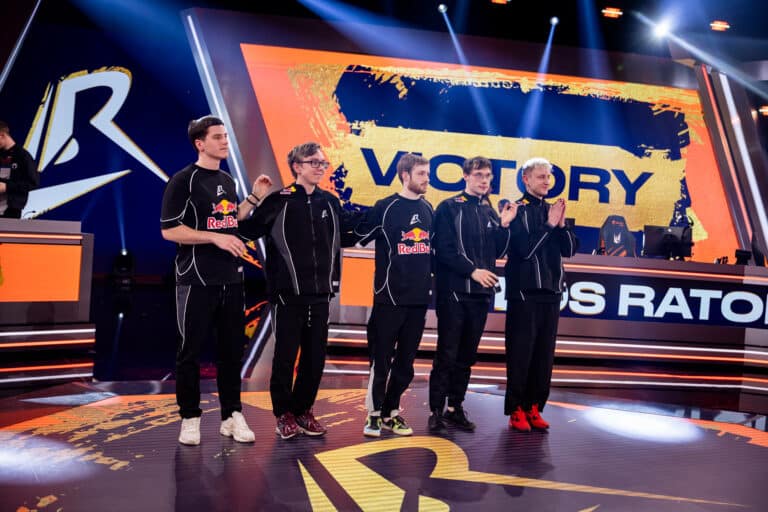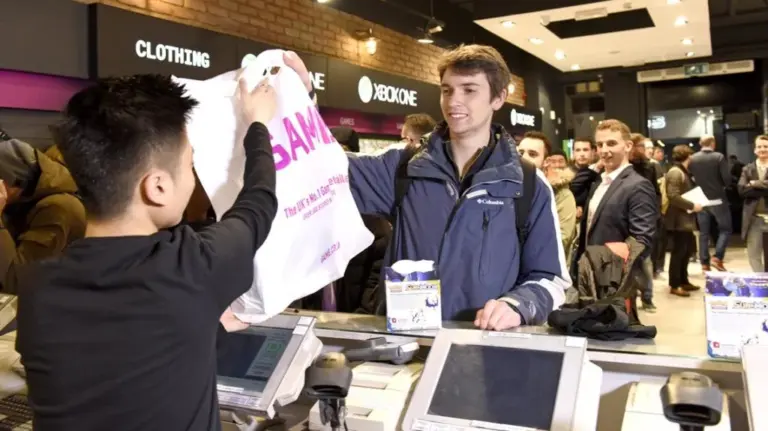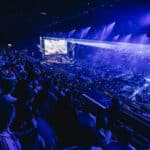Sam Mathews on Fnatic turning 20 years old: ‘It’s very hard to be consistently pushing esports forward every year and being competitive. I don’t think there’s been a single year in our history where we’ve not done that’
Dom Sacco, Senior Editor
Last Updated: 28/05/2025
A week ago, Fnatic celebrated their 20th birthday with a Fnatic XX party at the organisation’s London HQ. Dom Sacco caught up with Fnatic Founder and CEO Sam Mathews at the event, to discuss the milestone, the current state of esports (including the rise of Saudi Arabia and competing in the Esports World Cup) and the community’s high expectations for Fnatic to do well, ahead of the LEC summer 2024 finals and Fnatic’s new paid membership programme.
Sam thanks for talking to me, and congratulations on the 20-year milestone. How does it feel for Fnatic to turn 20, and during this current climate in esports? Did you think back in 2004 that Fnatic would still be here right now?
I’m not a good person to think too far into the future. Every year is a new year, and before you know it, you’re 20 years on.
I’m not one of those people who plan out a life mission or purpose, like, this is going to be my future, you know? It just happened, I loved it, I loved esports, I love competing, I love the thrill of competition.
There was a natural evolution, being able to compete whenever you want to online. That was the innovation when I started, because before that you’d have to find a rugby pitch or basketball or whatever it is and find a bunch of people etc. Now you just turn on your computer or phone, it’s so easy.
So did I think that I would be here? Honestly, I didn’t think about it. But being here now is surreal, it’s crazy, because 20 years is half my life! So it’s a long time and I’m proud of what we’ve accomplished.
Twenty years ago, a fire ignited a passion for gaming and competition, birthing an iconic global community.
— FNATIC (@FNATIC) July 23, 2024
Today, we're celebrating our 20th Birthday! 🎉 pic.twitter.com/rFmJI7Fsao
I’m an Arsenal fan, and the Fnatic London HQ is not far from their football stadium. I sort of see Fnatic as the Arsenal of esports – you have a massive global following, great teams, you win the occasional trophy, like you do in Valorant. But those big trophies, for example in League of Legends, seem to elude you. You get criticism for that. How do you reflect on that and look at your brand?
People hold us to high standards. We’ve been relevant for every single year of our 20-year history, and every single game we enter, we’re always trying to do our best. It’s not always possible, for whatever reason, whether it’s situations with players that we made wrong decisions on, cos it happens.
But at the same time, across all of the games, if you just took the stats of the number of world championships we’ve appeared at, versus any other team, in tier 1 esports in the top six to eight games, we’re at like 49 world championship qualifications. And the next closest is like 28. So we’re so far ahead, because of our consistency, our ability to put together a world championship fighting team.
Does that mean we’re always in contention? No. It’s obviously our goal to be in contention, but to do this across multiple games, all of the time, it’s a monumental challenge.
“People hold us to high standards. We’ve been relevant for every single year of our 20-year history, and every single game we enter, we’re always trying to do our best. It’s not always possible, for whatever reason, whether it’s situations with players that we made wrong decisions on, cos it happens.”
I often see Fnatic making good lower bracket playoff runs, Fnatic always seem to find a way into finals or major tournaments in certain games, and your Valorant team in particular seem to have this never-say-die attitude.
Our Valorant team is very charismatic. But in League of Legends, also, we have the likes of Razork, Noah, Humanoid… they have a lot of personality too, I think the issue is people kind of underestimate the Caps effect in League of Legends.
When you look at the stats, Caps is a phenomenal player, not only in-game, but out of game as well. We tried our best to keep him back in the day, and he’s been an incredible challenge to come up against.
In terms of the other teams, CS has had a bit of a hard run, I think we’ve made some poor decisions in the past. The way we shifted the management around that in the past year, I think we’re on the right path, but there’s still some ways to go to get back to the top five, the top three, and that’s what we’re aiming for. But we’re relevant in Apex Legends, for example, another game where we’re in the top three in the world right now.
I do think people judge us by one game or one performance, and that’s partly because for such a long time period, we were the dominant force in some of these games, like Counter-Strike and League of Legends. But to remain a dominant force is extremely hard to do across multiple games at all times.
I think there are elements of luck and there’s elements of once you’ve got a star player, building around them. If you do that right, you can hold onto that star status for like five years. And you’ve got teams like that in League of Legends, with Faker and Caps and players like that. It’s our job to find that next star.
It’s quite the task. Someone said to me earlier, ‘look at the other esports teams in London, they’ve underperformed compared to Fnatic’.
No one in London is even close [to us].

Fnatic moved to this London office in Dalston, from Shoreditch, last year. Why did you move here and what was the thinking behind this HQ?
It’s important to have a home in esports, because you don’t have a stadium. When we found this office, it’s a standalone building, car parking spaces, it’s an incredible old warehouse that used to be a warehouse for trams. So it has character, it has history, we’ve made it our own and are continuing to build upon it.
There’s a shared front [with another business] at the top, too. We rent one of the floors because it’s a little big for us right now.
It’s a venue as well. We’re using it for watch parties. We’ve got a ten-year lease on this. So the goal is really to continue to build on it and make it a destination for gaming in London and the UK, and to really make people proud when they walk in here.
Today is the first time we’ve really decked it out with the party vibe, and I think it’s amazing, it’s insane.
Fnatic always seem to throw a good party.
(Laughs)
Snaps from the Fnatic XX party
I know you had a partnership with Roma years ago. Have you ever spoken to Arsenal, given they’re around the corner?
We haven’t spoken to them. But we’ll do anything if it’s cool!
[At this point, Sam spots Fnatic’s cleaner through the glass of the meeting room we’re in. The cleaner is emptying a bin outside. We’re upstairs, and the party is downstairs, so it’s quiet outside]
So that’s my cleaner. I invited him to the party and he’s still cleaning. (shouts) Eddie, what are you doing? Stop cleaning!
[The cleaner laughs and continues cleaning]
“I do think people judge us by one game or one performance, and that’s partly because for such a long time period, we were the dominant force in some of these games, like Counter-Strike and League of Legends. But to remain a dominant force is extremely hard to do across multiple games at all times.”
It's more than a game.
— FNATIC (@FNATIC) August 1, 2024
We're excited to introduce Fnatic Plus. pic.twitter.com/bAjvG02loA
I’d love to hear your views on the state of the esports industry. Things have shifted a lot the past few years, Saudi Arabia is obviously on the rise and you’re competing in the Esports World Cup. I was talking to [Fnatic chief gaming officer] cArn earlier and asked him how Counter-Strike was going, and he said he’s had to shift his focus a bit given the Esports World Cup and Fnatic moving into games like Overwatch and TFT. How’s that been? It seems like Saudi is just on the up and up.
The reality is I think esports needed this. It’s a multi-team organisation competition, which is exactly where Fnatic shines. We’ve done a very good job of scouting new teams, eight new titles we’ve signed. We’re aiming to show our muscle and hopefully we can end up in a top placement.
For us, I think this is super interesting and it’ll only grow in interest as people really understand the format. You see Fnatic fans, they’re League of Legends fans to begin with, then they start watching Valorant, and Apex, and Overwatch.
It’s nice to have narratives and storylines. Esports has a tendency to be something that has so many opportunities for stories, and the Esports World Cup is another great moment to get behind your org and support them across multiple teams.
If you think about what it does to esports and gaming itself. There are so many niche esports that are getting attention, like Tekken and Street Fighter. Suddenly we’re in those games and now we’re leveraging our might in that industry, and hopefully we can grow those sports as well, as a group of teams.
So I think it gets a lot of flak, but ultimately I think it’s a good thing overall. The top people behind it are very passionate about gaming, I know this for a fact.
Prince Faisal has said he’s a big gamer.
He’s a massive gamer. There’s a reason why there’s new servers in League of Legends in the region, because a lot of the people love League of Legends.
So it's Fnatic XX day, and I've been thinking about what to write for a while, but it's incredibly hard to summarize what Fnatic has meant to me over the last 20 years.
— Sam Mathews (@sammathews) July 23, 2024
Firstly, I can't believe it's been 20 years. I'm turning 40 in 2 weeks, which means I've done this for over…
Obviously there is criticism around the human rights issues and sportswashing. Prince Faisal told Fox News last year: “If sportswashing is going to increase my GDP by 1%, then we will continue doing sportswashing. I don’t care. Call it whatever you want.”
For me, there is no country in this world that is without issue. And I’m not condoning any country’s actions. None. But in the scheme of things, we’re in esports, we just had the Olympic Games approve esports, partly because of the Esports World Cup. And it’s helped to grow our industry.
Fnatic is not a political organisation, and it shouldn’t be, because it’s a sports team.
There are always lines in everything. But we stand by our values and we will always stand by our values. And our values are we’re inclusive, we’re diverse, we work with whoever from wherever, and as long we’re able to continue to uphold our values and compete in tournaments… people bandwagon on concepts and don’t understand that change happens, and change can happen rapidly.
Do we want to support change? I think we should support change.
“Fnatic is not a political organisation, and it shouldn’t be, because it’s a sports team. There are always lines in everything. But we stand by our values and we will always stand by our values.”
Is there anything else you’d like to add, Sam? Thanks for the interview.
People just need to take a moment, step back, and note: It’s very hard to be consistently pushing esports forward every year and being competitive. I don’t think there’s been a single year in our history where we’ve not done that.
I’m so proud of that, because that’s a monumental amount of effort from everyone involved, in every single past, present and future Fnatics. I just want to thank them for all of their input and their efforts.
Always Fnatic.
Essential UK Casino & Betting Guides
Looking for the best casinos or betting sites? Below you’ll find our recommended guides that players in the UK are loving right now.
- Best Online Casinos UK
- Top-Rated Crypto Casino Sites in 2025
- Best Bookmakers 2026
- Top No KYC Casinos UK 2026
- Non Gamstop Casino Sites
Dom Sacco, Senior Editor
Dom is an award-winning writer and finalist of the Esports Journalist of the Year 2023 award. He has almost two decades of experience in journalism, and left Esports News UK in June 2025. As a long-time gamer having first picked up the NES controller in the late '80s, he has written for a range of publications including GamesTM, Nintendo Official Magazine, industry publication MCV and others. He also previously worked as head of content for the British Esports Federation.
Stay Updated with the Latest News
Get the most important stories delivered straight to your Google News feed — timely and reliable





From breaking news and in-depth match analysis to exclusive interviews and behind-the-scenes content, we bring you the stories that shape the esports scene.
Monthly Visitors
User Satisfaction
Years experience
